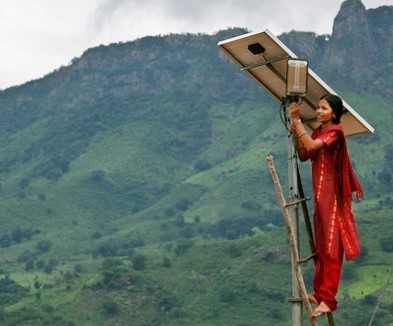The inability of the power sector in developing countries to reliably provide electricity, especially outside urban centres, is an important constraint to growth. One critical channel through which electricity shortages may hinder growth is through the negative impact of power outages on new business creation and the profitability and growth of enterprises. There are many factors driving unreliable electricity access in India. One important cause of electricity shortages is the inability of state distribution utilities to stem rampant power theft. Without the ability to recover costs, these bankrupt utilities cannot enhance supply. This proposal will provide experimental evidence on the relationship between electricity supply and small business creation and growth and simultaneously evaluate a group level incentive designed to enhance supply by increasing payment rates.
In partnership with the distribution utility in the state of Bihar in India, the researchers will experimentally evaluate a group-level incentive designed to address this collective action problem, where low payment rates in turn limit utility investment in supply. The incentive scheme they will study explicitly links hours of power supply to each neighbourhood to aggregate payment rates from that area so that higher-paying groups are guaranteed to earn more reliable supply. They propose to measure the response of consumers to this incentive in terms of both collection revenues and consequent impacts on power supply. The randomized rollout of this programme will induce exogenous variation (variation that comes from outside the context and is unexplained by any characteristics of the context) in supply and they propose to exploit this variation to identify the causal impact of improving electricity supply on the entry of new businesses and the productivity and growth of existing micro-enterprise.
States in India have invested significant amounts in infrastructure programmes designed to improve electricity supply. Feeder separation for instance, which involves delinking subsidized agricultural consumers from other sectors, has cost state exchequers hundreds of millions of dollars in Gujarat and Maharashtra. Evidence on the economic impacts of improving electricity supply is critical to a cost-benefit analysis of these schemes.









